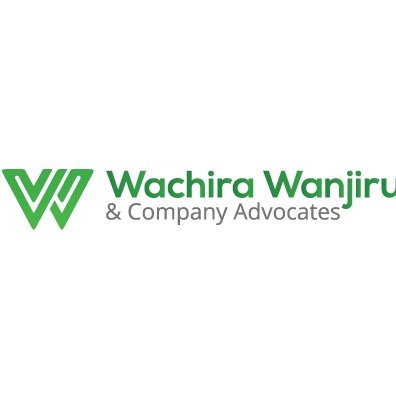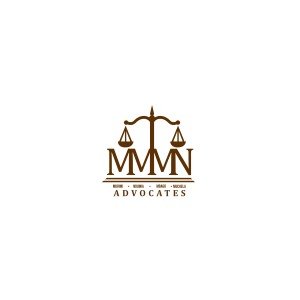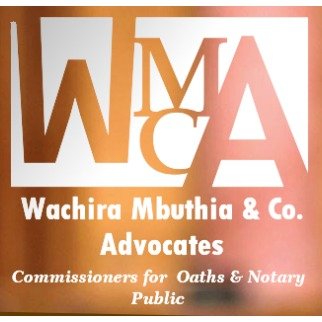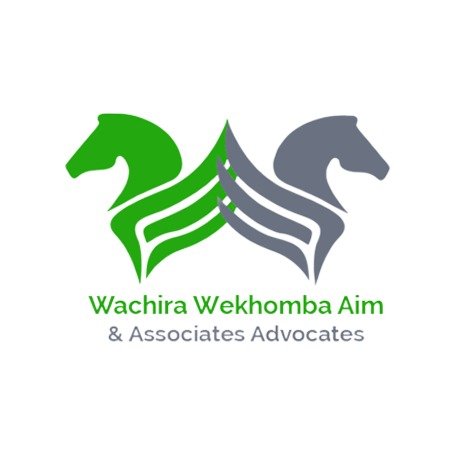Best Natural Resources Lawyers in Nakuru
Share your needs with us, get contacted by law firms.
Free. Takes 2 min.
List of the best lawyers in Nakuru, Kenya
About Natural Resources Law in Nakuru, Kenya
Nakuru County, located in the Great Rift Valley region of Kenya, is rich in natural resources, including fertile agricultural land, water bodies like Lake Nakuru, and mineral deposits. These resources offer significant economic potential for local communities and contribute to national development. Natural Resources Law in Nakuru covers various aspects such as land use, water rights, and mineral exploration and extraction, with a focus on sustainable development, environmental protection, and conflict resolution. It is essential for anyone dealing with natural resources to understand these laws to ensure compliance and protect their interests.
Why You May Need a Lawyer
Engaging with natural resources can be complex, often involving legal issues that require professional guidance. Here are some common situations where you might need legal assistance:
- Disputes over land ownership or usage rights.
- Negotiations involving the extraction or exploration of minerals.
- Environmental impact assessments and compliance with regulations.
- Water rights and disputes related to water usage.
- Licensing and permits for resource exploitation.
- Community-based agreements and benefit-sharing arrangements.
Local Laws Overview
Understanding local laws is crucial for anyone involved in natural resources. Key aspects include:
- Land Laws: Governed by the Land Act, these laws cover land acquisition, ownership, and use. The Community Land Act is vital for understanding communal land management.
- Environmental Regulations: The Environmental Management and Coordination Act (EMCA) guides how natural resources should be used sustainably, focusing on impact assessments and pollution control.
- Water Act: Defines the governance framework for water resources management, including allocation, use, and dispute resolution.
- Mining Act: Provides the legal framework for mineral exploration, extraction, and licensing in Kenya, emphasizing sustainable and environmentally sound practices.
Frequently Asked Questions
1. What constitutes a natural resource in Nakuru?
Natural resources in Nakuru include land, forests, minerals, wildlife, and water bodies like Lake Nakuru. These are vital for economic development and environmental sustainability.
2. How can I obtain land for resource exploitation?
You can obtain land through purchase, lease, or community agreements, subject to national and local land laws. Legal assistance can help navigate these processes.
3. What are the requirements for mineral exploration?
You need a government-issued license, which requires environmental and social impact assessments, plans for sustainable extraction, and community engagement.
4. How do water rights work in Nakuru?
Water rights are governed by the Water Act, which requires licenses for significant use. Permits consider environmental impact and equitability of resource distribution.
5. Can community groups manage natural resources?
Yes, community management is encouraged under the Community Land Act, which allows local groups to manage resources and benefit from them, subject to legal compliance.
6. What are my environmental responsibilities?
You are required to conduct Environmental Impact Assessments (EIA) for any resource exploitation project and comply with environmental management plans tailored to mitigate adverse effects.
7. What should I do if there’s a land dispute?
Engage a lawyer familiar with land laws to handle negotiations or pursue alternative dispute resolution mechanisms before considering litigation.
8. How are disputes over mineral resources handled?
Disputes are typically addressed through mediation, arbitration, or litigation, focusing on compliance and equitable benefit sharing as guided by the Mining Act.
9. What is sustainable development in this context?
Sustainable development involves using natural resources in a way that meets present needs without compromising the ability of future generations to meet their own needs.
10. Can foreign entities invest in Nakuru’s natural resources?
Yes, foreign investment is allowed, but it must comply with national laws, including obtaining relevant licenses and ensuring partnerships contribute to local development.
Additional Resources
Here are some organizations and governmental bodies that can provide further assistance:
- National Environment Management Authority (NEMA)
- Kenya Land Commission
- Water Resources Authority (WRA)
- Ministry of Mining
- Local advocacy groups and community resource management committees
Next Steps
If you require legal assistance with natural resources in Nakuru, consider the following steps:
- Identify the specific legal issue you are facing.
- Research local lawyers with experience in natural resources law.
- Prepare all relevant documents and information related to your case.
- Schedule consultations to discuss your situation and evaluate potential legal solutions.
- Engage a lawyer to help navigate regulations, draft agreements, and represent you in disputes if needed.
Lawzana helps you find the best lawyers and law firms in Nakuru through a curated and pre-screened list of qualified legal professionals. Our platform offers rankings and detailed profiles of attorneys and law firms, allowing you to compare based on practice areas, including Natural Resources, experience, and client feedback.
Each profile includes a description of the firm's areas of practice, client reviews, team members and partners, year of establishment, spoken languages, office locations, contact information, social media presence, and any published articles or resources. Most firms on our platform speak English and are experienced in both local and international legal matters.
Get a quote from top-rated law firms in Nakuru, Kenya — quickly, securely, and without unnecessary hassle.
Disclaimer:
The information provided on this page is for general informational purposes only and does not constitute legal advice. While we strive to ensure the accuracy and relevance of the content, legal information may change over time, and interpretations of the law can vary. You should always consult with a qualified legal professional for advice specific to your situation.
We disclaim all liability for actions taken or not taken based on the content of this page. If you believe any information is incorrect or outdated, please contact us, and we will review and update it where appropriate.















